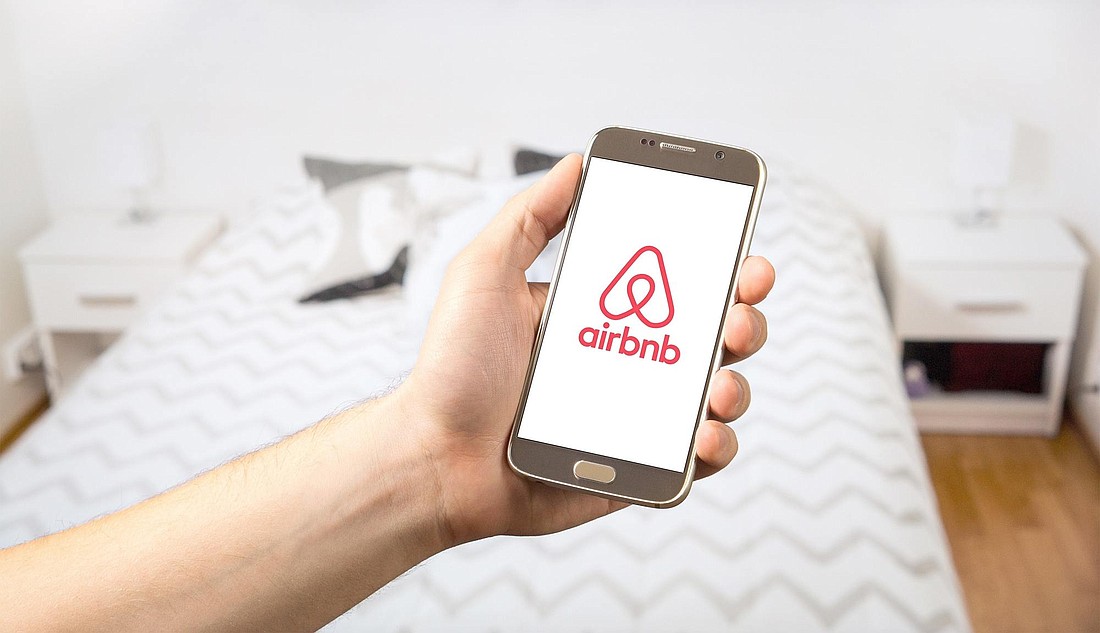- December 13, 2025
-
-
Loading

Loading

ORANGE COUNTY – As the popularity of Airbnb and similar sites continues to grow, Orange County commissioners examined how they should approach its increasing usage.
Airbnb is a company that operates an online marketplace for people wanting to rent out their entire homes, spare rooms or guest beds. According to a basic search on its site, there are 306 total listings in Orange County. However, some listings might no longer be active.
“With its increased popularity, we also have increasing concerns from the community,” said Jennifer Moreau, an assistant manager in the county’s zoning department. “You essentially have what is a commercial use in a residential neighborhood, which can cause additional issues, including parking, noise, garbage.”
In a work session held during the May 22 Orange County Board of Commissioners meeting, Jennifer Moreau, an assistant manager in the County’s zoning department, provided commissioners with a refresher on the county’s existing rules on short-term rentals.
EXISTING RULES
As currently written, Orange County's code on short-term rentals – some of which dates back to 1957 – only refers to traditional hotels, time-shares and motels, Moreau said. Short-term rentals are defined as 180 days or fewer and are strictly confined to commercial or industrially zoned areas.
The code also contains language pertaining to B&Bs, homestays and inns, which are permitted by right or special exception in agricultural, residential multifamily and commercial areas.
In addition, the county’s code permits transient rentals in a single-family home, so long as the home is located within an R-3 (multifamily) zoned area and the rental is fewer than 30 days.
However, even if one meets all the zoning requirements to host a short-term rental, one still needs to abide by any applicable HOA rules, and Airbnb is not permitted if your HOA has rules against it.
And even if you’re in the clear, there are still some other legal requirements for hosting short-term rentals.
“Assuming you meet the zoning requirements and you meet any HOA requirements, there are also other requirements you would need to meet in order to be allowed by code,” Moreau said. “You would need to pull a business tax receipt, possibly obtain a use permit, … meet state lodging regulations, pay your hotel/motel tax, and then address any building or fire code requirements.”
PROS AND CONS
During her presentation, Moreau pointed out the pros and cons of Airbnb, as well as possible community concerns.
“There are also public safety concerns with high turnover in neighborhoods, which can affect the character and stability of neighborhoods,” she said. “There’s also a potential lack of investment. Absentee landlords are generally presumed to be less diligent about routine maintenance than owner-occupied (homes). And there’s also the competition to traditional hotels and bed-and-breakfasts.”
Despite the potential disruption to the traditional hotel industry, Moreau added that Airbnb can help Orange County homeowners struggling to pay their mortgage.
But she also highlighted the link between short-term rentals and affordable housing, explaining that residential properties purchased for later use as short-term rentals lead to housing shortages and, thus, exacerbate the county’s affordable housing problem.
“There’s actually two sides to this coin,” Moreau said. “On the one side, it can assist homeowners with offsetting homeownership costs, especially in regard to hosted rentals. … On the other side of that, you have investors that are specifically buying up residential properties with the intent of using them for commercial uses as short-term rentals. So decreasing the longterm housing stock can then contribute to an increase in housing and rental prices.”
AIRBNB COMPLAINTS
The county decided to review its rules on short-term rentals after a couple requested the county to allow short-term hosted rentals in residential neighborhoods, Moreau added.
The couple, which had been unaware of the existing short-term rental rules, received an anonymous code enforcement complaint in December 2017. In the past two years, the county’s Code Enforcement Board has received approximately 75 complaints regarding Airbnb use, Moreau said.
This is out of the 26,000 total complaints the CEB received in 2017 alone, she said.
Following a lengthy discussion, county commissioners ultimately agreed via consensus to revisit the issue after observing how things play out in Orlando, which approved new rules in February allowing short-term rentals in all residential neighborhoods. Orlando’s new ordinance becomes effective July 1.
“I think that I’d like to see some lessons learned with how it plays out in the city of Orlando,” said Betsy VanderLey, the Orange County District 1 Commissioner. “There are some items that … if we moved forward, I would want to require – some of the sexual predator language and some other things like that to protect guests.
“We certainly don’t want to go on the map, nationally, for some kind of a debacle there,” she continued. “But having said that, I do think that less regulation might be more in this particular case, because if we get too sophisticated and too tricky in our ordinance … we could tee law-abiding citizens up to be not law-abiding citizens because of the level of ordinance that they might have to comply with. You know, these folks are citizens, they don’t have compliance divisions to handle this.”